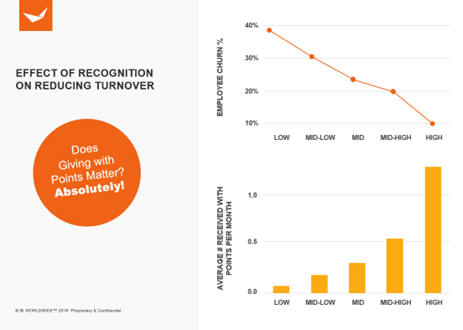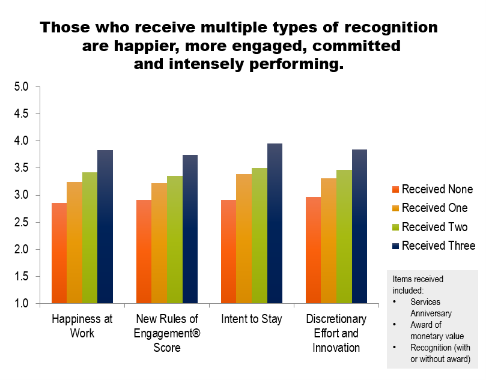Rewarding and Motivating People in Today’s Workplace
More than ever employees are feeling the financial pinch due to inflation, cost of living pressures and the uncertainty around interest rates.
Combining this environment with being in an employee market, signifies the need to focus on retainment of talent.
Related article: Rewarding and Motivating People in Today’s Workplace
The Link between Rewards and Turnover
There is much research out there demonstrating the impact meaningful rewards have on lifting engagement and reducing turnover. BI WORLDWIDE’s own global meta-analysis study, involving 30,000 employees, shows a clear link between the frequency of rewards and low turnover.

The finding found that turnover is 4x higher among employees with the lowest recognition with awards, compared to the highest rate of recognition with awards.
PwC Australia’s Future of Work Outlook
PwC Australia’s Future of Work Outlook looks to highlight the complex problems facing organisations and identify key trends that will require attention in the coming years. Findings suggest organisations should avoid cutting learning and development budgets to continue to nurture and grow the talent they’ve attracted in the past 12 months.
Providing sufficient rewards and recognition to employees is highlighted as a key factor in reducing the risk of psychosocial hazards outlined in the Work Health and Safety legislation. Doing so will only support an organisation’s ability to attract and retain talent in the shifting job landscape.
BI WORLDWIDE’s own research backs this up:

Creating a culture of recognition where meaningful rewards are frequent, results in employees being happier, more engaged, committed, and productive.
It is clear building a culture of recognition not only plays a key role in achieving strong employee engagement but also directly impacts mental health and overall happiness.
Related Article: Supporting Employee Health and Wellbeing
We recently gathered feedback from many human-centric business leaders at the Serenity Collective’s Deep Dive Day.
The feedback was clear and concluded that, As meaningful rewards produce a positive emotional outcome, taking rewards away has a negative emotional outcome, flowing through the organisation’s culture.
